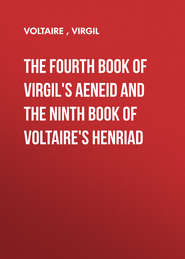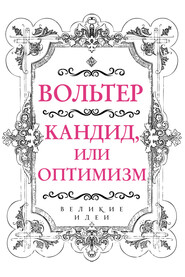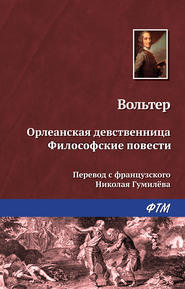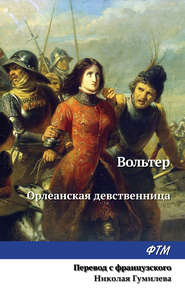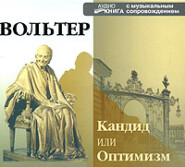По всем вопросам обращайтесь на: info@litportal.ru
(©) 2003-2024.
✖
A Philosophical Dictionary, Volume 03
Настройки чтения
Размер шрифта
Высота строк
Поля
M. de Chamousset, one of the most valuable and active of citizens, has computed, from accurate authorities, that in the Hôtel Dieu, a fourth part of the patients die, an eighth in the hospital of Charity, a ninth in the London hospitals, and a thirtieth in those of Versailles. In the great and celebrated hospital of Lyons, which has long been one of the best conducted in Europe, the average mortality has been found to be only one-fifteenth. It has been often proposed to divide the Hôtel Dieu of Paris into smaller establishments better situated, more airy, and salubrious, but money has been wanting to carry the plan into execution.
Curtae nescio quid semper abest rei.
Money is always to be found when men are to be sent to the frontiers to be destroyed, but when the object is to preserve them it is no longer so. Yet the Hôtel Dieu of Paris has a revenue amounting to more than a million (forty thousand pounds), and every day increasing, and the Parisians have rivalled each other in their endowments of it.
We cannot help remarking in this place that Germain Brice, in his "Description of Paris," speaking of some legacies bequeathed by the first president, Bellievre, to the hall of the Hôtel Dieu, named St. Charles, says: "Every one ought to read the beautiful inscription, engraved in letters of gold on a grand marble tablet, and composed by Oliver Patru, one of the choicest spirits of his time, some of whose pleadings are extant and in very high esteem.
"Whoever thou art that enterest this sacred place thou wilt almost everywhere behold traces of the charity of the great Pomponne. The gold and silver tapestry and the exquisite furniture which formerly adorned his apartments are now, by a happy metamorphosis, made to minister to the necessities of the sick. That divine man, who was the ornament and delight of his age, even in his conflict with death, considered how he might relieve the afflicted. The blood of Bellievre was manifested in every action of his life. The glory of his embassies is full well known," etc.
The useful Chamousset did better than Germain Brice, or than Oliver Patru, "one of the choicest spirits of his time." He offered to undertake at his own expense, backed by a responsible company, the following contract:
The administrators of the Hôtel Dieu estimated the cost of every patient, whether killed or cured, at fifty livres. M. Chamousset and the company offered to undertake the business, on receiving fifty livres on recovery only. The deaths were to be thrown out of the account, of which the expenses were to be borne by himself.
The proposal was so very advantageous that it was not accepted. It was feared that he would not be able to accomplish it. Every abuse attempted to be reformed is the patrimony of those who have more influence than the reformers.
A circumstance no less singular is that the Hôtel Dieu alone has the privilege of selling meat in Lent, for its own advantage and it loses money thereby. M. Chamousset proposed to enter into a contract by which the establishment would gain; his offer was rejected and the butcher, who was thought to have suggested it to him, was dismissed.
Ainsi chez les humains, par un abus fatal,
Le bien le plus parfait est la source du mal.
Thus serious ill, if tainted by abuse,
The noblest works of man will oft produce.
CHARLES IX
Charles IX., king of France, was, we are told, a good poet. It is quite certain that while he lived his verses were admired. Brantôme does not, indeed, tell us that this king was the best poet in Europe, but he assures us that "he made very genteel quatrains impromptu, without thinking (for he had seen several of them), and when it was wet or gloomy weather, or very hot, he would send for the poets into his cabinet and pass his time there with them."
Had he always passed his time thus, and, above all, had he made good verses, we should not have had a St. Bartholomew, he would not have fired with a carbine through his window upon his own subjects, as if they had been a covey of partridges. Is it not impossible for a good poet to be a barbarian? I am persuaded it is.
These lines, addressed in his name to Ronsard, have been attributed to him:
La lyre, qui ravit par de si doux accords,
Te soumets les esprits dont je n'ai que les corps;
Le maître elle t'en rend, et te fait introduire
Où le plus fier tyran ne peut avoir d'empire.
The lyre's delightful softly swelling lay
Subdues the mind, I but the body sway;
Make thee its master, thy sweet art can bind
What haughty tyrants cannot rule – the mind.
These lines are good. But are they his? Are they not his preceptor's? Here are some of his royal imaginings, which are somewhat different:
Il faut suivre ton roi qui t'aime par sur tous
Pour les vers qui de toi coulent braves et doux;
Et crois, si tu ne viens me trouver à Pontoise,
Qu'entre nous adviendra une très-grande noise.
Know, thou must follow close thy king, who oft
Hath heard, and loves thee for, thy verse so soft;
Unless thou come and meet me at Pontoise,
Believe me, I shall make no little noise.
These are worthy the author of the massacre of St. Bartholomew. Cæsar's lines on Terence are written with rather more spirit and taste; they breathe Roman urbanity. In those of Francis I. and Charles IX. we find the barbarism of the Celts. Would to God that Charles IX. had written more verses, even though bad ones! For constant application to the fine arts softens the manners and dispels ferocity:
Emollit mores, nec sinit esse feros.
Besides, the French languages scarcely began to take any form until long after Charles IX. See such of Francis I.'s letters as have been preserved: "Tout est perdu hors l'honneur" – "All is lost save honor" – was worthy of a chevalier. But the following is neither in the style of Cicero nor in that of Cæsar:
"Tout a fleure ynsi que je me volois mettre o lit est arrivé Laval qui m'a aporté la serteneté du lévement du siege."
"All was going so well that, when I was going to bed Laval arrived, and brought me the certainty of the siege being raised."
We have letters from the hand of Louis XIII., which are no better written. It is not required of a king to write letters like Pliny, or verses like Virgil; but no one can be excused from expressing himself with propriety in his own tongue. Every prince that writes like a lady's maid has been ill educated.
CHINA
SECTION I
We have frequently observed elsewhere, how rash and injudicious it is to controvert with any nation, such as the Chinese, its authentic pretensions. There is no house in Europe, the antiquity of which is so well proved as that of the Empire of China. Let us figure to ourselves a learned Maronite of Mount Athos questioning the nobility of the Morozini, the Tiepolo, and other ancient houses of Venice; of the princes of Germany, of the Montmorencys, the Chatillons, or the Talleyrands, of France, under the pretence that they are not mentioned in St. Thomas, or St. Bonaventure. We must impeach either his sense or his sincerity.
Many of the learned of our northern climes have felt confounded at the antiquity claimed by the Chinese. The question, however, is not one of learning. Leaving all the Chinese literati, all the mandarins, all the emperors, to acknowledge Fo-hi as one of the first who gave laws to China, about two thousand five hundred years before our vulgar era; admit that there must be people before there are kings. Allow that a long period of time is necessary before a numerous people, having discovered the necessary arts of life, unite in the choice of a common governor. But if you do not make these admissions, it is not of the slightest consequence. Whether you agree with us or not, we shall always believe that two and two make four.
In a western province, formerly called Celtica, the love of singularity and paradox has been carried so far as to induce some to assert that the Chinese were only an Egyptian, or rather perhaps a Phœnician colony. It was attempted to prove, in the same way as a thousand other things have been proved, that a king of Egypt, called Menes by the Greeks, was the Chinese King Yu; and that Atoes was Ki, by the change of certain letters. In addition to which, the following is a specimen of the reasoning applied to the subject:
The Egyptians sometimes lighted torches at night. The Chinese light lanterns: the Chinese are, therefore, evidently a colony from Egypt. The Jesuit Parennin who had, at the time, resided five and twenty years in China, and was master both of its language and its sciences, has rejected all these fancies with a happy mixture of elegance and sarcasm. All the missionaries, and all the Chinese, on receiving the intelligence that a country in the extremity of the west was developing a new formation of the Chinese Empire, treated it with a contemptuous ridicule. Father Parennin replied with somewhat more seriousness: "Your Egyptians," said he, "when going to people China, must evidently have passed through India." Was India at that time peopled or not? If it was, would it permit a foreign army to pass through it? If it was not, would not the Egyptians have stopped in India? Would they have continued their journey through barren deserts, and over almost impracticable mountains, till they reached China, in order to form colonies there, when they might so easily have established them on the fertile banks of the Indus or the Ganges?







